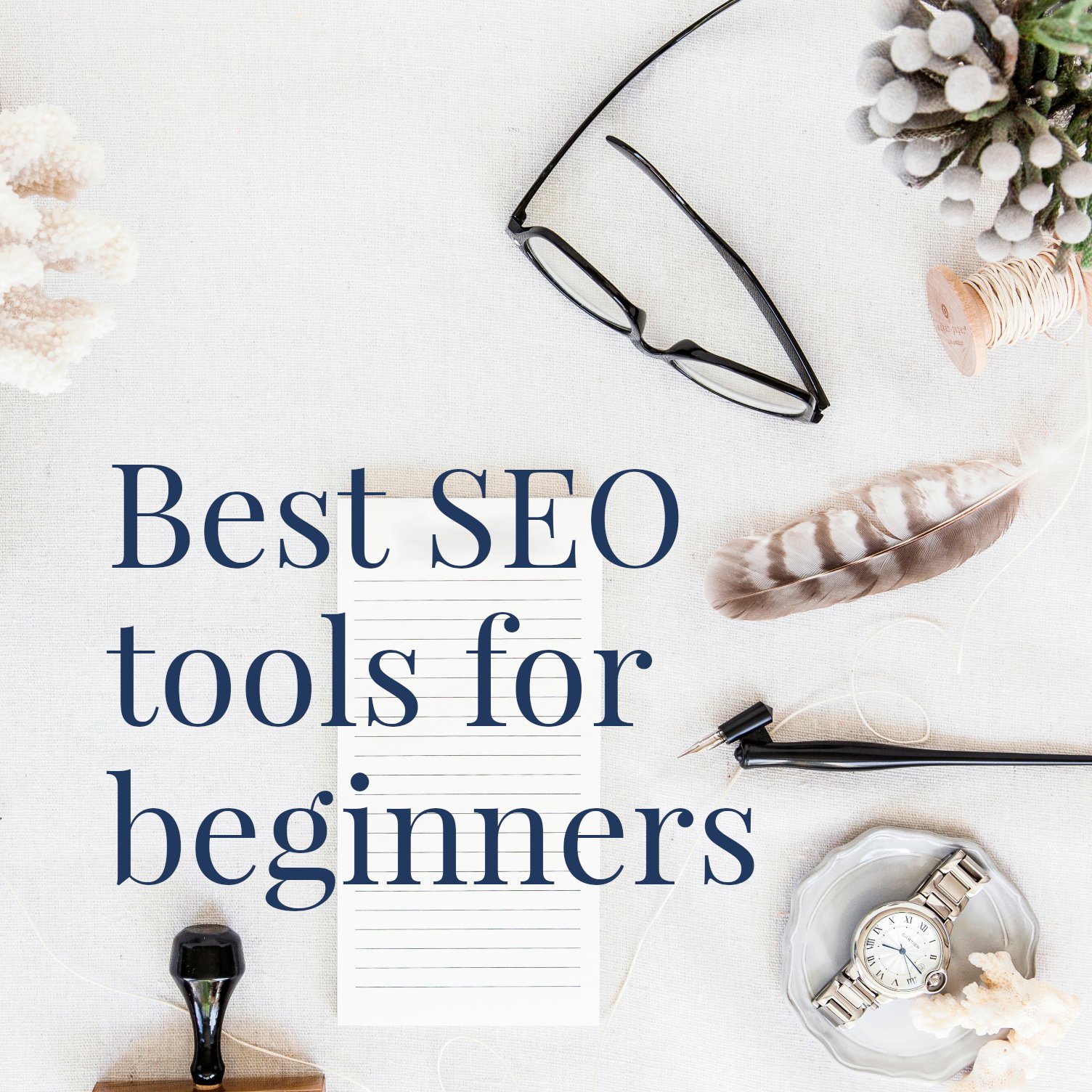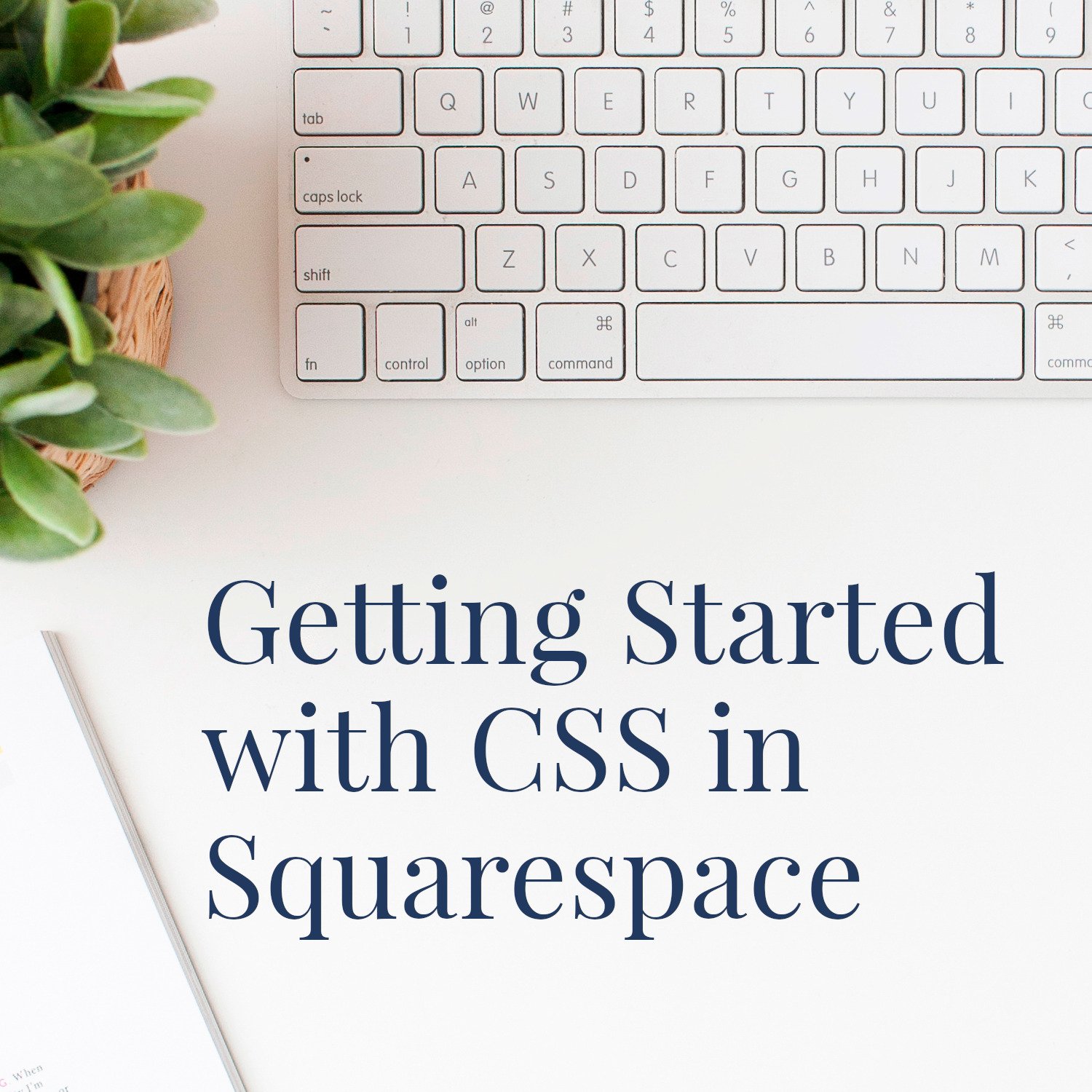Best SEO Tools for Beginners
• This article contains affiliate links •
Search Engine Optimization (SEO) is a big topic, and a specialized area. As an SEO beginner, you might feel daunted about getting started with optimizing your site.
But the good news is, there are simple steps you can take at first. When time and bandwidth allow, you can do more later. This article includes 3 small but achievable tactics, all using easy SEO tools.
As for all those spammy emails you get from people claiming they can land your website on the first page of organic search results? Just delete them. Best practice certainly evolves, and happily Google is now wise about some of the icky techniques used in the past.
If you’re here on my site, hopefully you share my aspirations for thoughtful marketing that feels good. Many of us now aim to balance the experience of the lovely humans who visit our websites, while also getting noticed (sometimes) by the search robots.
1. Check your SEO basics
Google expects your site to work properly, to be secure, and to give visitors a good experience on all devices.
So there are a number of checks you should definitely do, to make sure you’re not slipping up and leaving money on the table.
Here are 5 of the best free SEO tools for checking essential website performance:
Page load speed: nobody likes to be kept hanging around. If your web pages load slowly, Google will penalize you. Here’s a useful way to check. Be worried if your loading takes more than 5 seconds, but don’t panic if you only get an “average” grade. Some of the most successful online marketers are falling squarely in the middle zone.
(Jargon alert*) Your site needs an SSL certificate, so browsers know that any information entered is handled in a secure way. If all is well, your website address shows up as https instead of http and there’s often a padlock icon too. Check yours here.
*Related: Website jargon guide for authorsDepending on your audience, a huge proportion of your website visitors might use their phone. Google expects your site to look good and be easy to use on mobile. Check if Google is happy with your website here.
As folks navigate around your website, they’ll follow links you place there, both to your own pages and to external sites. Again, for a good user experience, you don’t want them tripping up with broken links. This is a handy tool to check your links. Put a note in your calendar to do this every few months: it’s surprising how fast things get out of date and (other people’s) links break. Don’t worry, however, if links appear broken, if they’re pointing to pages where someone typically needs to log in. The link checker often stumbles here, but in real life, these links are fine.
Important meta tags need to be in place, for example your website title, and image "alt" text. Even though Google strives to judge a website on the experience a human has, in fairness, it’s robots that crawl and analyze your site. On every page you have the opportunity to set descriptive information that most humans won’t see, but is enormously helpful to explain to the robot what your site is about. In some cases, these tags help humans too: for every image you should specify alternative (“alt”) text, in case a visitor has poor vision and is using a screen reader to describe your page. Screaming Frog SEO Spider is a handy free tool that you can use to check important tags on each page. You need to download it to use it, but it certainly has an adorable name ;)
Screaming Frog - one of the best free SEO tools
If your website falls short on any of these, you may need professional help to fix it.
However, platforms like Squarespace do a great job of providing resources to help you tackle the problem yourself, first. Here are some that I particularly like:
Making sure SSL is active on your Squarespace site. Unlike other website platforms, on Squarespace your SSL certificate is free and usually automatic.
Information about false “Mobile Usability” errors you’ll sometimes receive from Google. The solution to these, by the way, almost always seems to be to change nothing, click that you’ve “fixed” the error, the robot takes another look, and is usually happy.
How to prevent huge images from slowing down your page load speed on Squarespace.
2. Find keyword ideas quickly: affordable SEO tools
Assuming your site basics are in order, an important part of SEO success is to post quality content that people are actually searching for.
A note about SEO for authors
If you’re a fiction author, I encourage you to pause here and ask your ideal reader if they do, in fact, search Google for new books to read. If they don’t, you might be better off placing your effort elsewhere. For example, check out my article on 8 things to do instead of blogging.
However, if you write nonfiction, or you know your readers are looking for your material in search engines, boosting your author SEO does make sense. Aim to build a body of work (typically blog posts, but possibly YouTube videos or podcast show notes) that are targeted for how you want to be found.
This means you’ll include specific words and short phrases (together known as keywords) in your content.
And you need to research what people are looking for. For us mere mortals, it usually pays to target lower volume, niche keywords instead of highly competitive terms. For example, try yoga for runners with knee pain, not yoga tips.
My favorite free or cheap tools for SEO keyword research
Google is well known for having its own, free, keyword planner tool. It’s good, but recently I’ve found number 4 in this list to be more convenient.
Ubersuggest from Neil Patel offers a limited amount of research for free. If you have the patience to return here repeatedly, you can build up a good list of search terms.
Answer the Public gets a lot of media coverage and you might like the mind map format of suggestions. For me, it’s lacking because it doesn’t show you search volume.
Finally, the affordable tool that has become my absolute favorite is a Chrome Plugin called Keywords Everywhere. This is a really nifty helper that overlays search volume and keyword ideas right there in your main Google search page. I got the version where I paid just $10 for 100,000 keyword credits. These credits last a year and that number is ample for my needs. My only quick caveat is to remember to toggle it off when you’re not actively doing keyword research! The convenience of this plugin is what makes it, in my opinion, one of the best SEO tools for beginners.
3. Take part in a challenge for SEO beginners
My knowledge of SEO shot through the roof when I started learning with free resources from Love At First Search. I then joined the Attract + Activate group coaching program earlier this year.
See the bump on this chart? That’s when I started implementing what I learned, and suddenly my blog posts and main website pages started showing up in meaningful numbers on Google:
This increase in traffic soon turned to client bookings, and some of the most enjoyable projects I’ve done this year are because of SEO. Did I make my money back? Absolutely, many times over.
I mention this because I’m sharing affiliate links for two of the free and paid programs offered by Meg and her team at Love At First Search, and I want you to know I’m thrilled with how they’ve worked for me.
You can get a free SEO Starter Kit here, or, even better, look out for the annual SEOctober Challenge. This year, the challenge is in the format of 1 video, 1 call, and 1 piece of feedback, every week for the whole month. You’ll focus on optimizing your website homepage for SEO, without having to create anything new. In other words, you’ll be picking low hanging fruit, with Meg’s expert and friendly help.
I took part last October and it was an excellent taster for how to use some of the beginner SEO tools I’ve highlighted above.
Is spending time on SEO worth it?
In recent years my opinion on SEO has evolved. Based on my own business journey and talking to dozens of authors, coaches, and consultants, here’s my view now:
You should definitely take the time to get the SEO basics of your website right. See the first section, above.
Then, check that your ideal audience or client is, in fact, looking for what you sell, on Google. SEO for authors is nuanced. If you are a fiction author, or you sell high-end 1:1 coaching services where referrals are key, it may not be worth pinning your hopes on SEO. However, if people are searching for what you do, then…
Know yourself: can you commit to the sustained effort of producing relevant, quality content on a consistent basis? SEO results do not come overnight. And, for author friends, sorry, but you can’t just blog about any life trivia that comes into your head.
If you can commit, then for anyone who enjoys writing, using SEO to grow your reach can be not only very rewarding, but enjoyable too.
•
Would you like me to design and build your Squarespace author or coaching website?
As a professional specializing in author and coaching website design, I’m an expert in using not only SEO but myriad other tech + design features to create a stunning and effective home for your work. If you’d like technical marketing advice and all of the implementation taken care of, consider hiring me.
After careful preparation together, I’ll design, build and launch your site in just 2 weeks. Learn more, and then schedule our free and friendly chat.
Other resources for a website and blog that work hard
And for the essential steps in your website project, take a look at my free 50 Step Website Checklist.












